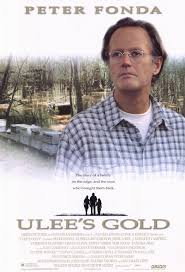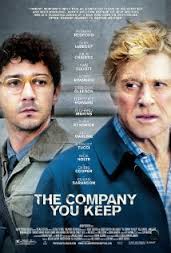
‘Gran Torino’ a good drive
in need of another lap
Clint Eastwood should never be allowed to retire.
He’s 78, and he’s still got the look. There will be times during “Gran Torino” when you’re just dying for him to say, “Go ahead, make my day,” and while the message is a bit different now, packs as much Magnum force as ever.
If Clint were not in the starring role, it might not be such a memorable film. “Gran Torino” has some parallels with, but does not quite reach the caliber of, the recent “Ulee’s Gold,” an exceptional Peter Fonda film that has unfortunately fallen a bit off the radar screen since his Oscar nomination.
Now in his directorial heyday, Eastwood’s films are unsparing. He specializes in discomfort, putting in front of viewers subjects they probably wouldn’t discuss in public. They are subjects that produce viewpoints that most people are probably not very proud to admit they hold or, at a minimum, are not something most people want to dwell on.
“Gran Torino” is in this mold, although the formula is conventional and the material in some instances starts to run dry. A trip to the barbershop is way overdone, there are too many repeated mispronunciations of names, too many lines and jokes about the huge amount of diversity in the film, and a few extended conversations about tools that seem constructed to fill space.
And, much as anyone hates to do it, the question must be asked: Is Clint really unsparing enough here, or did he tip his hand too early that there might be a soft spot deep inside Walt’s heart?
Peter Boyle’s portrayal of an old, bigoted man in “Monster’s Ball” is a good standard to meet. His character is unyielding, even though there might be a moment or two when he seems like he might finally get it.
From the beginning, it almost feels like everything Eastwood’s Walt Kowalski says is served with a wink and a nod, even if it’s not and even if the literal words are painful. The effect is a less intense, more appealing character study, but one that has a fairly low ceiling.
“Gran Torino” introduces an ethnic minority unknown to most moviegoers: the Hmong, a Southeast Asian people who have settled primarily in the upper Midwest. The movie could make them Vietnamese instead, but then would lack an element of mystery. Because they are not well known, there must be an unnatural conversation between one of them and Walt in which the Hmong person describes the (very) brief history of why Americans care about the Hmong. Clint does his best to take their chat in stride during what seems like an overly long car ride. But not only is the scene unnatural, it’s a tiny chip in Walt’s credibility, because these people have been resettling in his town since the 1970s and surely someone as astute as Walt would be familiar with the sparse history given out by his neighbor Sue Lor.
The Hmong, though, serve a very important purpose here and illustrate why Walt’s neighbors can’t be Latinos: Walt has seen this before, he has taken sides in an Asian civil war … and he knows that the winners are the ones who never have to pick up a gun.
Not too many scenes in “Gran Torino” are unpredictable. In the first 45 minutes we’re not quite sure where it’s headed, but once the direction is clear, the suspense begins to fizzle and plot developments begin to resemble many a film we’ve seen before.
Walt’s sons and grandchildren are never given a chance. They seem like they might’ve been spoiled, although the family couldn’t have had a whole lot of money. The movie succeeds greatly at showing the value of the small things that fathers can teach their children, apparently benefits that Walt’s children never received, and it shows. One little line from Walt suggests why they might be that way, and that it might not be their fault.
Taken far more broadly, this is why the film matters: Eastwood shows us why human beings tend to have more in common with their neighbors than their own flesh and blood, and why where we are sometimes is just as important as what we are.
Eastwood is two-for-two this year in positive portrayals of clergy (“Changeling” being the other), which might be a relief to some Oscar voters who were highly put off by Pastor Sunday in last year’s puzzling “There Will Be Blood.”
Bee Vang, Clint’s sidekick as Thao Vang Lor, is not particularly extraordinary and, if not for his unusually rough haircut, we probably would not pay him much attention. He never seems to give Walt the type of return on investment that Norman receives from Billy Ray in “On Golden Pond.” Thao’s sister, Sue, is the more admirable character and the one to watch. The trouble she finds herself in is very disheartening; we know Walt and Thao can settle their own issues, but that Sue might pay a very heavy price for all of them.
Clint Eastwood has delivered more powerful roles, but he’s done worse, too. “Gran Torino” feels like the type of project that might be a little incomplete, that maybe this character felt good to him and he pushed through a film that wasn’t quite all the way there just yet. But those who haven’t found much cheer in his recently acclaimed works like “Million Dollar Baby” or “Letters from Iwo Jima” should be happy to know that Clint the Actor is alive and kicking.
3.5 stars
(December 2008)
“Gran Torino” (2008)
Starring Clint Eastwood as Walt Kowalski ♦ Christopher Carley as Father Janovich ♦ Bee Vang as Thao Vang Lor ♦ Ahney Her as Sue Lor ♦ Brian Haley as Mitch Kowalski ♦ Geraldine Hughes as Karen Kowalski ♦ Dreama Walker as Ashley Kowalski ♦ Brian Howe as Steve Kowalski ♦ John Carroll Lynch as Barber Martin ♦ William Hill as Tim Kennedy ♦ Brooke Chia Thao as Vu ♦ Chee Thao as Grandma ♦ Choua Kue as Youa ♦ Scott Eastwood as Trey ♦ Xia Soua Chang as Kor Khue ♦ Sonny Vue as Smokie ♦ Doua Moua as Spider ♦ Greg Trzaskoma as Bartender ♦ John Johns as Al ♦ Davis Gloff as Darrell ♦ Tom Mahard as Mel ♦ Cory Hardrict as Duke ♦ Nana Gbewonyo as Monk ♦ Arthur Cartwright as Prez ♦ Austin Douglas Smith as Daniel Kowalski ♦ Conor Liam Callaghan as David Kowalski ♦ Michael E. Kurowski as Josh Kowalski ♦ Julia Ho as Dr. Chang ♦ Maykao K. Lytongpao as Gee ♦ Carlos Guadarrama as Head Latino ♦ Andrew Tamez-Hull as Latino Gangbanger #1 ♦ Ramon Camacho as Latino Gangbanger #2 ♦ Antonio Mireles as Latino Gangbanger #3 ♦ Ia Vue Yang as Hmong Flower Woman #1 ♦ Zoua Kue as Hmong Flower Woman #2 ♦ Elvis Thao as Hmong Gangbanger #1 ♦ Jerry Lee as Hmong Gangbanger #2 ♦ Lee Mong Vang as Hmong Gangbanger #3 ♦ Tru Hang as Hmong Grandfather ♦ Alice Lor as Hmong Granddaughter ♦ Tong Pao Kue as Hmong Husband ♦ Douacha Ly as Hmong Man ♦ Parng D. Yarng as Hmong Neighbor ♦ Nelly Yang Sao Yia as Hmong Wife ♦ Marty Bufalini as Lawyer ♦ My-Ishia Cason-Brown as Muslim Receptionist ♦ Clint Ward as Officer ♦ Stephen Kue as Officer Chang ♦ Rochelle Winter as Waitress ♦ Claudia Rodgers as White Woman Neighbor ♦ Vincent Bonasso as Tailor ♦ Tony Stef’Ano as Man on Street
Directed by: Clint Eastwood
Written by: Nick Schenk
Written by: Dave Johannson (story)
Producer: Clint Eastwood
Producer: Bill Gerber
Producer: Robert Lorenz
Executive producer: Jenette Kahn
Executive producer: Tim Moore
Executive producer: Adam Richman
Original music: Kyle Eastwood, Michael Stevens
Cinematography: Tom Stern
Editing: Joel Cox, Gary D. Roach
Casting: Ellen Chenoweth, Kathy Mooney
Production design: James J. Murakami
Set decoration: Gary Fettis
Costumer: Diana Edgmon
Makeup and hair: Tania McComas, Jay Wejebe, Kimberly Jones, Kimberley Fitzpatrick, Kevin J Edwards





